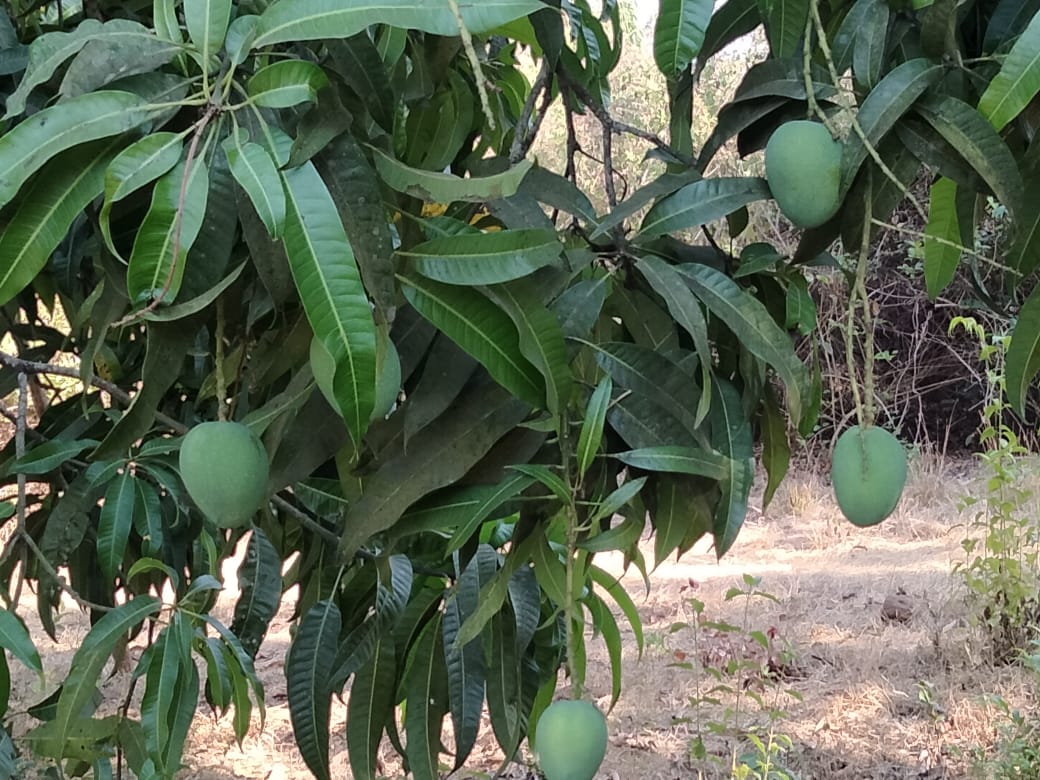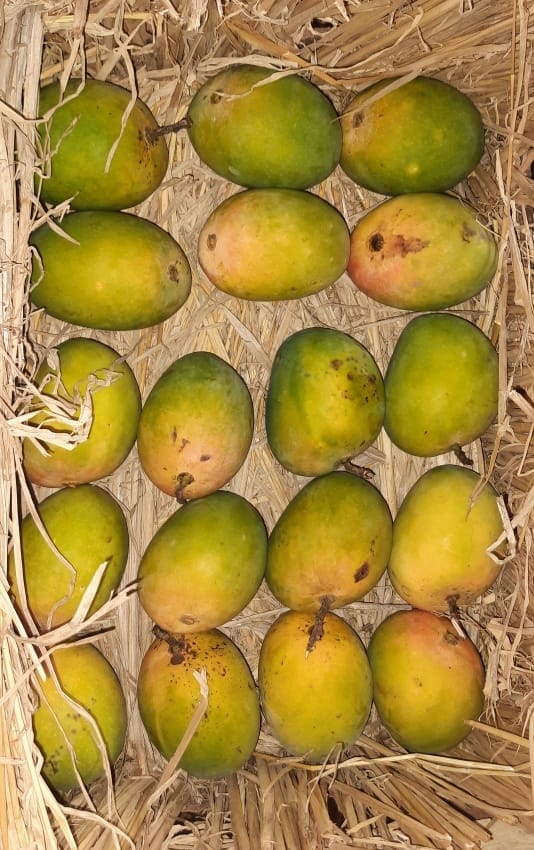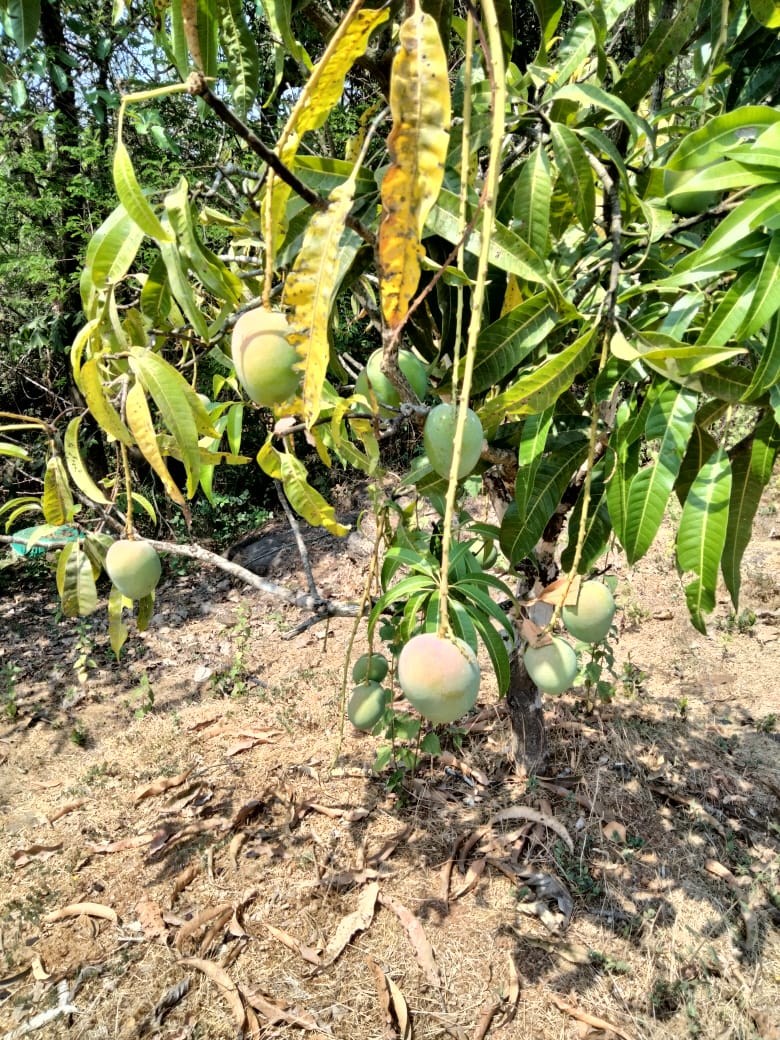Mangoes have a special place in our hearts!
Over the last 5,000 years, the mango has been an integral part of our culture and cuisine. Be it the north of India or the south, mangoes have been India’s favourite fruit for centuries. Both, ripe and raw mangoes, have been a treat for our tastebuds! From pickles and summer drinks to chutneys and smoothies, mangoes are everywhere.
Did you know that India is the world’s largest producer of mangoes? Over two-thirds of the entire world’s mango comes from India! Our mangoes are not only a staple in every household in our country but are enjoyed worldwide. The popularity of our mangoes has increased through the years.
Which is the best mango, you ask? The Alphonso mango, of course! By far, they are the most sought-after variety of mangoes in the world, renowned for their rich flavour and aroma.

The Tastiest Mangoes?
Alphonso mangoes are grown primarily in the state of Maharashtra and are harvested each summer. Also known as the hapus mango, they are named after the Portuguese general Alfonso de Albuquerque, who brought the fruit to India in the 16th century.
The unique taste and texture of these mangoes are what makes them so popular. They are sweet and juicy, and have a creamy texture that is unmatched by any other variety of mango. The flavour of Alphonso mangoes is complex, with notes of honey, apricot, and citrus. It also has a subtle hint of tartness to balance the sweetness.

Where Do Alphonso Mangoes Grow?
In Maharashtra, Alphonso Mangoes grow in the Konkan region of Ratnagiri. This region is bestowed with rich natural resources of soil, water and vegetation. The temperatures here range between 34-37 degrees in the daytime and get dip to around 25 degrees at night. These are the most suitable conditions for Alphonso to grow.
As summers approach, the temperature soars. These increasing temperatures enhance the sweetness and pulpiness of the Alphonso mangoes. The high temperature accelerates the production of natural sugars and enzymes in the fruit, which contributes to the development of its unique flavour. Hot and dry conditions help to develop the distinct aroma of these mangoes too. Ratnagiri’s lateritic soil also serves as the ideal platform for these mango orchards.
Ratnagiri’s Alphonso mangoes are available for almost two months. Either mid-May or the end of May is when mango production of these mangoes ends when the monsoon arrives. Once it begins to rain, the fruit begins to spoil from the inside.
Usually, mangoes are considered a chemical crop. During the flowering stage itself, many flowers of the crop tend to fall off. So to increase and retain the flowering, many chemicals are sprayed onto the crop.

Where Do Our Alphonso Mangoes come from?
Ratnagiri is considered a geographical indicator for hapus mango. There are certain farms in Ratnagiri which have a GI tag. At Indic Living, we source our mangoes from sourced from those particular farms.
We follow standard procedures right from the flowering to the fruit-plucking stage. We don’t use any carbides or chemicals for ripening up the mangoes. Once the raw fruit is harvested at the mature state, when the farmer knows that the fruit has ripened, that’s when they are cut from the trees.
How Are Our Mangoes Grown?
Because of the huge demand for these mangoes, we often see chemically ripened fruit in the market. These are not mature fruits, strictly speaking. They are sour in taste and their skin colour might look yellow and seem ripe but the inside pulp colour is light yellowish white. This indicates that they are artificially ripened.
Our farmers organically grow these mangoes by using natural manure, natural fertilisers, Panchagavya (cow milk, cow urine, cow dung, ghee, and curd, derived from cows), Jivamrut etc, which get the flowers intact on the mango trees. With these natural fertilisers, many nutrients are added to the soil to increase its fertility.

Once harvested, our mangoes are carefully segregated as per their size. The bigger ones are called Grade A1, medium-sized ones are Grade A2 and the smallest ones are Grade A3.
Raw mangoes are packed in boxes with dry grass. This ensures that each of them ripen at their own pace. Usually, the ripening starts 3-4 days after Indic Living receives the boxes. Our customers are advised to check their boxes daily. If one fruit ripens, it is meant to be taken out. This helps the rest of the mangoes to ripen.
Since these are organic mangoes, they don’t leave a burning taste, unlike chemically ripened ones, in your mouth. Nothing can beat the luscious taste of a farm-fresh Alphonso mango!
Indic Living has been working with the same Alphonso partner farms and their families for almost 5 years now. We have a huge success story on this, and our customers that we get the right fruit at the right time. We never buy the first harvest fruit. The ripeness, taste and authenticity of each fruit are ensured before it reaches your doorstep.
Are you waiting to try out our exclusively sourced organic Alphonso mangoes?
Order them now to taste the difference!
By: Moushumi Mishra
